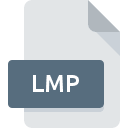.LMP File Extension

Quake Engine Lump File
| Developer | id Software |
| Popularity | |
| Category | Game Files |
| Format | .LMP |
| Cross Platform | Update Soon |
What is an LMP file?
.LMP files are proprietary files used by the Quake engine, a seminal first-person shooter (FPS) game developed by id Software in the mid-1990s.
These files contain various data, including graphics, sounds, and other resources essential for the game’s operation.
Lump files serve as a centralized repository for game assets, allowing for efficient access and management within the game engine.
More Information.
When Quake was released in 1996, .LMP files played a crucial role in shaping the game’s modding and customization community.
Modders could create custom content by manipulating existing .LMP files or creating new ones, thereby extending the lifespan and appeal of the game.
Additionally, .LMP files facilitated the distribution of user-generated content, fostering a vibrant ecosystem of mods, maps, and other enhancements.
Origin Of This File.
The genesis of .LMP files can be traced back to the development of Quake, which revolutionized the gaming industry with its advanced 3D graphics and immersive gameplay.
As the game evolved, developers needed a structured way to organize and access game assets such as textures, models, and sounds.
The concept of lump files emerged as a solution, providing a unified format for storing these resources within the game’s file system.
File Structure Technical Specification.
.LMP files follow a specific structure designed to accommodate various types of game assets. While the exact format may vary depending on the asset type, a typical .LMP file consists of headers, metadata, and raw data sections.
These sections are organized in a manner that allows the game engine to parse and utilize the contained resources efficiently.
The technical specifications of .LMP files are well-documented within the Quake modding community, with tools and utilities available for manipulating and analyzing their contents.
Developers can extract, modify, or create .LMP files using specialized software designed for Quake modding purposes.
How to Convert the File?
Converting .LMP files to other formats may be necessary for compatibility or interoperability purposes. While direct conversion tools for .LMP files may be limited, developers can achieve conversion through intermediate steps:
- Extracting Resources: Use specialized tools to extract individual resources (e.g., textures, sounds) from .LMP files.
- Converting to Standard Formats: Convert extracted resources to standard file formats (e.g., PNG for images, WAV for audio) using appropriate software.
- Repacking: After making necessary modifications, repack the converted resources into the desired format compatible with the target platform or software.
While this process may involve multiple steps, it allows developers to overcome compatibility barriers and leverage .LMP content in a broader context.
Advantages And Disadvantages.
Advantages:
- Centralized Asset Management: By consolidating game assets into lump files, developers can streamline the game’s file structure and improve resource management.
- Modularity: .LMP files allow for modular content creation, enabling developers to add or modify game assets without altering the core game files.
- Customization: Modders can create custom content using existing .LMP files as templates, fostering creativity and community engagement.
Disadvantages:
- Compatibility Issues: .LMP files are specific to the Quake engine and may not be compatible with other game engines or software platforms.
- Complexity: Working with .LMP files requires a certain level of technical expertise, particularly when creating or modifying complex game assets.
- Version Dependencies: Changes to the Quake engine or file format may affect the compatibility of .LMP files across different game versions.
How to Open LMP?
Open In Windows
- Use Quake-Compatible Software: Install software compatible with Quake .LMP files, such as WinRAR or 7-Zip. These tools allow you to extract the contents of .LMP files on Windows.
- Quake Modding Tools: Utilize Quake-specific modding tools designed for Windows. These tools provide comprehensive support for managing .LMP files and other game assets.
Open In Linux
- Command Line Utilities: Linux users can use command-line utilities like unzip to extract the contents of .LMP files directly from the terminal.
- Quake Modding Tools: Explore Quake modding tools available for Linux distributions. These tools offer similar functionality to their Windows counterparts, allowing you to work with .LMP files seamlessly.
Open In MAC
- The Unarchiver: Install The Unarchiver, a free and open-source utility for macOS. This tool supports various archive formats, including .LMP files, allowing you to extract their contents with ease.
- Terminal Commands: Advanced users can use Terminal commands to extract .LMP files on macOS. Command-line utilities like unzip provide the necessary functionality for extracting archives.
Open In Android
- Quake-Compatible Apps: Install Android apps compatible with Quake .LMP files, such as QI4A – Quake for Android. These apps may provide built-in support for loading and managing .LMP files within the Quake game environment.
- File Manager Apps: Use file manager apps with archive extraction capabilities to extract the contents of .LMP files on Android devices. Apps like RAR or 7-Zip File Manager can handle .LMP files efficiently.
Open In IOS
- Quake-Compatible Apps: Install iOS apps compatible with Quake .LMP files, such as Quake Mobile. These apps may offer features for loading and managing .LMP files directly on iOS devices.
- File Manager Apps: Similar to Android, iOS users can utilize file manager apps with archive extraction capabilities to access the contents of .LMP files. Apps like Documents by Readdle or WinZip provide support for handling .LMP files on iOS.













